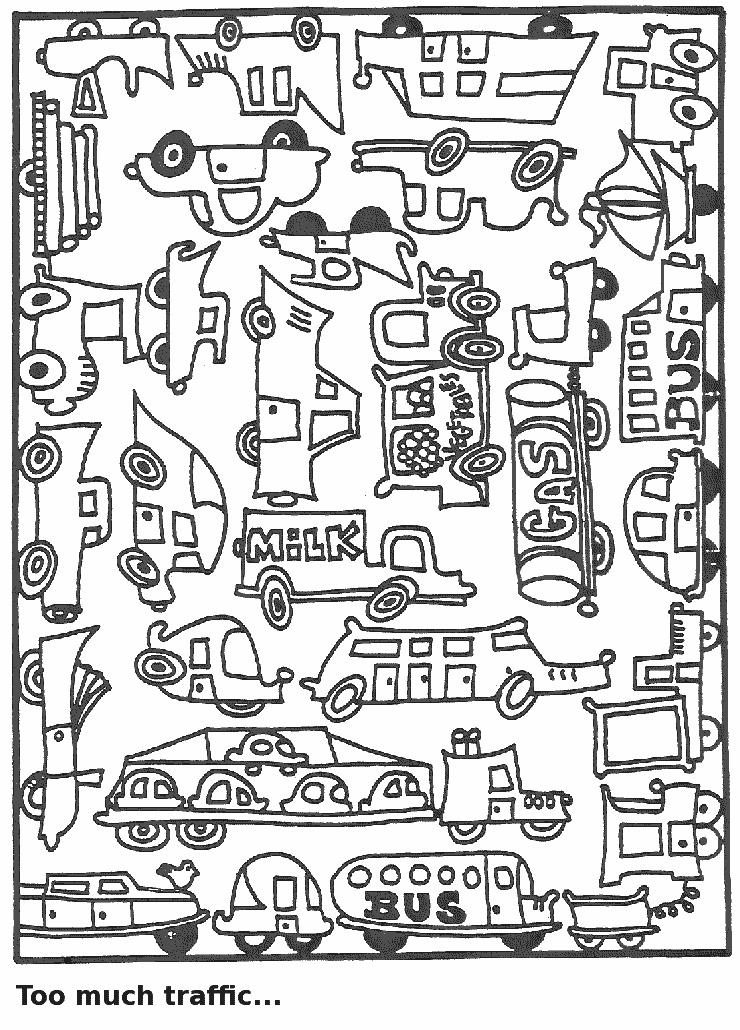Autos: Good Times Screech to a Halt 中国汽车业:当繁荣已成往事
China’s latest monthly auto figures are out, and the slight decrease in April sales is the latest evidence that the boom times of 2009 and 2010 are in the rear view mirror. (English article) But much more worrisome is the decidedly downbeat forecast from the usually-peppy association that compiles the figures, which is now predicting auto sales for this year could actually drop 10 percent from record 2010 levels that saw China pass the US to become the world’s largest auto market. The group cited a number of reasons for the rapid cool-down, including an end to incentives that fueled last year’s huge gains, high fuel prices and moves by major cities like Beijing and Shanghai to  restrict new car sales to ease urban congestion. Indeed, many of my friends who used to drive everywhere have done the unthinkable in recent weeks and are taking public transport, which has greatly improved in major cities these last few years. Such a major shift in sentiment from an industry that was previously expecting 10 percent growth this year underscores the fact that auto sales are no longer a priority for Beijing, which will hurt the likes of global powerhouses like General Motors (NYSE: GM) and Volkswagen (Frankfurt: VOWG), not to mention homegrown players like SAIC (Shanghai: 600104), Geely (HKEx: 165) and BYD (HKEx: 1211), which have all posted big profit gains due to strong domestic sales. Beijing will of course continue its support for alternate energy vehicles, though that slice of the market will remain tiny for at least the next few years. In the meantime, look for a rough road ahead for China’s major auto makers in the next 1-2 years.
restrict new car sales to ease urban congestion. Indeed, many of my friends who used to drive everywhere have done the unthinkable in recent weeks and are taking public transport, which has greatly improved in major cities these last few years. Such a major shift in sentiment from an industry that was previously expecting 10 percent growth this year underscores the fact that auto sales are no longer a priority for Beijing, which will hurt the likes of global powerhouses like General Motors (NYSE: GM) and Volkswagen (Frankfurt: VOWG), not to mention homegrown players like SAIC (Shanghai: 600104), Geely (HKEx: 165) and BYD (HKEx: 1211), which have all posted big profit gains due to strong domestic sales. Beijing will of course continue its support for alternate energy vehicles, though that slice of the market will remain tiny for at least the next few years. In the meantime, look for a rough road ahead for China’s major auto makers in the next 1-2 years.
Bottom line: The triple whammy of high fuel prices, an end to government incentives and local restrictions on new car buying will cast a chill over China’s auto sales for the next 1-2 years.
中国最新的月度汽车销售数据出炉了,4月份汽车销量小幅下降,这也是2009年和2010年中国汽车繁荣局面已成过去式的最新证据。但更令人担心的是,汇编该数据的协会给出了非常悲观的预测,称今年实际的汽车销售数量可能会从2010年的创纪录水平下挫10%。中国2010年超越美国,成为世界上最大的汽车市场。该协会就这种快速冷却的情况给出了多个理由,包括政府刺激政策的终止、高昂的燃料价格以及北京、上海等城市为缓解城市交通拥堵而限制新车销售等举措。的确,我的很多朋友过去到哪里都要开车,最近几周却很不可思议地转乘公共交通。过去几年,中国主要城市的公共交通得到了极大改善。汽车业人气的巨大转变说明了一个事实,即汽车销售不再是中国政府优先发展的市场,这将伤及通用汽车<GM.N>和大众汽车<VOWG.DE>等汽车业巨头的利益,更不用提上海汽车(SAIC)<600104.SS>、吉利<0175.HK>和比亚迪<1211.HK>等本土汽车商。因国内市场销量强劲,上述国内汽车商都发布了丰厚的利润收益报告。中国政府当然会继续支持替代的能源型汽车,尽管未来几年,新能源汽车的市场比重依然很小。同时,中国主要汽车生产商在未来1-2年内还有一条艰难的路要走。
一句话:燃料价格的高企、政府刺激举措的终止、限制购买新车的举措将在未来1-2年为中国的汽车销售投下阴影。
Related postings 相关文章:
◙ GM’s China Growth Story Stalls Out 通用汽车在华增长势头受挫
◙ China’s Green Auto Dream: A Road Paved with Problems 中国的绿色汽车之梦:前途荆棘密布
◙ Auto Show: Sinotruk, Great Wall Explore Slow, Fast Roads Out of China 车展:重汽、长城各显神通开辟海外市场
